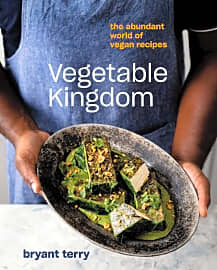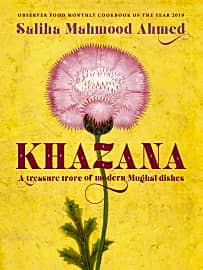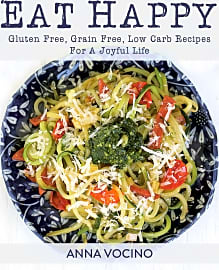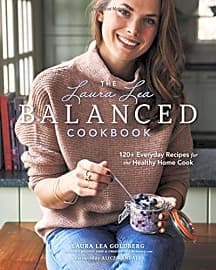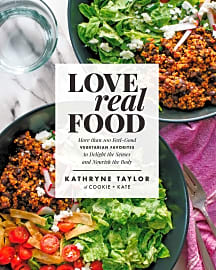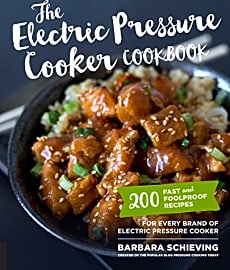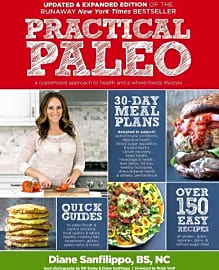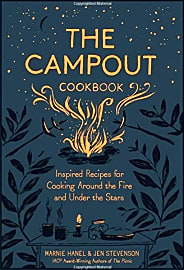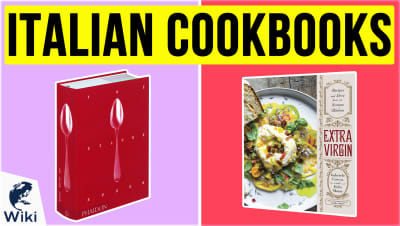The 10 Best Cookbooks

This wiki has been updated 38 times since it was first published in August of 2015. Don’t make the same old meatloaf — again. Amp up your culinary repertoire with an exciting new cookbook, instead. The world’s greatest chefs and foodies offer a range of volumes that includes every kind of dish you can imagine, from remixed basics to gourmet creations. Among our diverse selection are works dedicated to healthy recipes, quick meals, and allergy-friendly cuisine. When users buy our independently chosen editorial recommendations, we may earn commissions to help fund the Wiki.
Editor's Notes
March 18, 2020:
There is no shortage of pleasantly photographed books containing simple but delicious recipes made from mostly readily accessible ingredients in a predominantly French tradition with adjustments for ease of preparation and the modern Western palate. To be honest, I find these books dreadful, and our last list had about four of them on it.
I ever went to culinary school, but I've poured through a whole host of cookbooks over the years to gain the confidence to cook strange fish and incorporate unusual spices and suspicious ingredients. I also understand that a lot of people want fast, easy, healthy, and tasty meals they can make on a budget. So, it was my intention to provide a little bit of everything here, preserving the best of those more traditional books in The Laura Lea Balanced and Love Real Food, with some newcomers that are poised to ride food trends that look like they're here to stay.
One of those trends — at least by the numbers, as it's been a lifestyle for ages — is veganism, and Bryant Terry's Vegetable Kingdom does a great job proposing dishes that avoid the use of processed meat substitutes, letting other ingredients take center stage. I learned about this book after hearing him describe on the radio how he pan sears fennel in a blazing hot cast iron skillet until the edges caramelize and the interior is almost like a cooked potato in texture. And it's the use of these innovative techniques that really raises this book to the next level.
For the adventurous types in the kitchen, we've added Saliha Mahmood Ahmed's Khazana, which lets you in on a cuisine you can't find at any restaurant in any Western city I know of. It's similar in many ways to Indian and Persian food, but it spice combinations are more flavorful and less heat-centric.
The Earliest Known Cookbooks
Nearly every literate society throughout the ages has produced at least one cookbook.
Since the early days of man, people have written cookbooks to record and teach important recipes of their time. Nearly every literate society throughout the ages has produced at least one cookbook. One of the earliest known cookbooks is "Hdypatheia", which translates into pleasant living. It was written by Archestratus, a Greek poet and food lover, in 350 BCE. "Hdypatheia" was written in the style of a poem and throughout, Archestratus focuses on how cosmopolitan Greek food of the time was and how to pick the best foods, along with where to travel to taste them.
One of the most famous of the early cookbooks is "Deipnosophistai, a treatise on food and food preparation". It was written by Greek gourmet Athenaues sometime in the 2nd century BCE. Unlike the standard format of today's cookbooks, it was written in the form of a dialogue between two banquet guests. In it, they share recipes with each other and discuss a number of dishes.
The "Apicius", which is sometimes referred to as "De re coquinaria" is another famous cookbook from ancient times. It was written some time in the fourth or fifth century CE by Marcus Gavius Apicius, and contains a large collection of Roman cookery recipes. Unlike most documents of the time, the Apicius was written in a language that is closer to Vulgar Latin than classical Latin. Apicius was known for having such lavish banquets that it eventually caused him to go bankrupt.
The earliest known cookbook from the Arabic world is al-Warraq, which is a collection of recipes from the ninth and tenth century. From the far east, there is a Chinese cookbook entitled "Yinshan Zhengyao", which was written in the fourteenth century and still survives to this day.
How To Put A New Cookbook To Good Use
Most people find it hard to integrate new recipes into their repertoire. All too often people buy a new cookbook, put it on the shelf, and promptly forget about it. To prevent yourself from doing that very same thing, there are a few simple tips to can follow to ensure that this doesn't happen to you.
All too often people buy a new cookbook, put it on the shelf, and promptly forget about it.
Start off by treating a cookbook just like a novel. Don't wait until you are ready to cook something before taking the time to read it. Instead, set it with the rest of the novels you read and take the time to look through all of the pages, including the pantry and tips sections. Not only will you learn about new ingredients and quicker ways to prep food, but it will give you a good overview of all the different recipes in the book. As you read through it, place sticky notes or bookmarks on the recipes you want to try, even if they look difficult or time consuming.
Once you have read through the book and it is filled your notes, pick out 10 recipes to try within the next 30 days. Write the names and needed ingredients down on a piece of paper and stick it to your refrigerator. Next time you are making a shopping list, refer to it and add some of the needed ingredients to your list.
Identify 10 additional recipes you'd like to try that include techniques or ingredients you are unfamiliar with. Write these down as well and post them in the same spot. These recipes will be reserved for days you have a lot of time to spend cooking, such as weekends or other days you don't work.
Putting a few notes in your calendar or planner to remind you to try the new recipes is also a good idea. Put one at the 30, 60, and 90 day marks.
Why Cooking At Home Is A Smart Idea
It's no secret that restaurant food is, for the most part, unhealthy. Many might be surprised to learn though that full-service restaurant food is just as unhealthy, if not worse, than fast food. A recent study published in the European Journal of Nutrition found that eating at both types of restaurants is linked to increased calorie, fat, saturated fat, sodium, and cholesterol consumption. In fact, the study found that eating at full-service restaurants resulted in a larger increase of sodium and cholesterol.
It's no secret that restaurant food is, for the most part, unhealthy.
In addition to higher levels of unhealthy properties, restaurant meals often contain little nutritional value. They rarely provide one with the required amount of fruits and vegetables, resulting in vitamin deficiencies in many Americans. On top of all of this, restaurants are notorious for their overly large portion sizes, and people have a habit of trying to finish what is on their plate. Preparing meals at home not only allows one to provide themselves with healthier meals, it also makes practicing portion control easier.
Sharing home-cooked meals around the table with the family is a great way to encourage family bonding. This is doubly true if the family periodically takes the time to prepare meals together. It's also a great way for parents to instill their children with the healthy eating habits. A study by the University of Michigan found that kids who share family meals at home are associated with fewer physiological issues and higher academic success.



